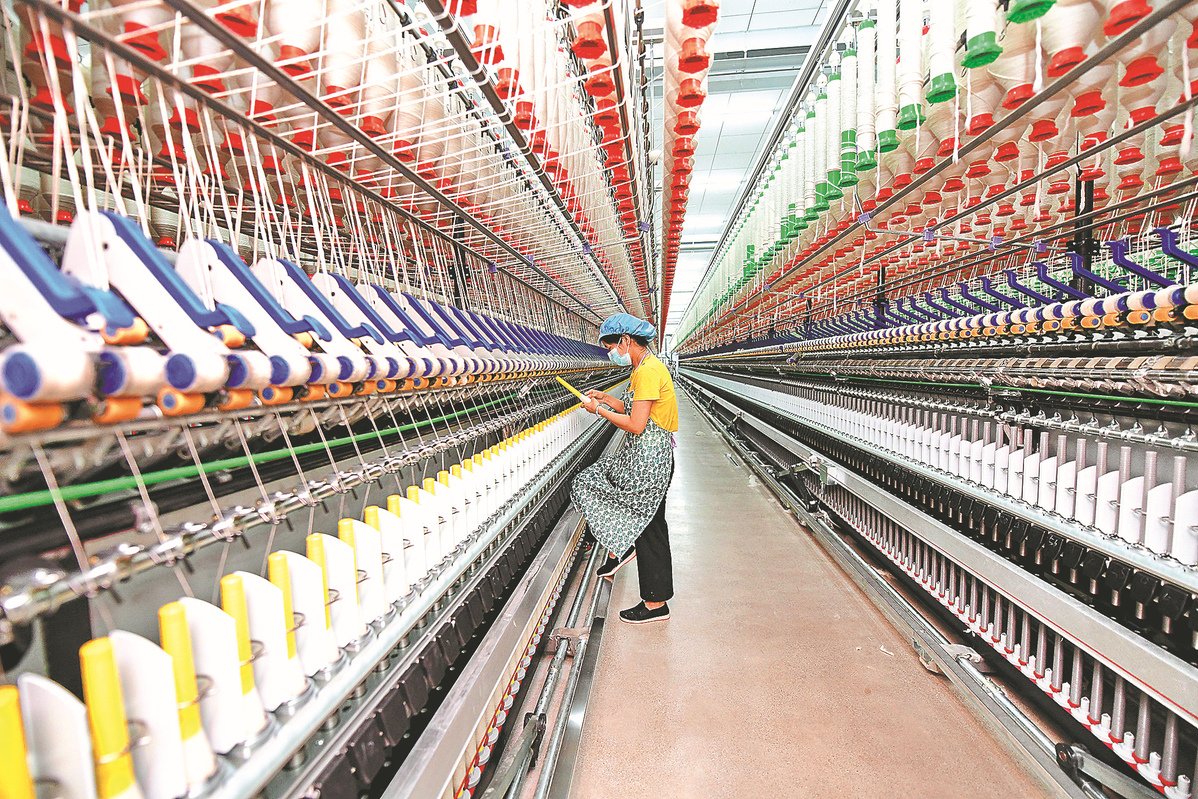Shot in the arm for China's private sector


Citing the guidance released by the Communist Party of China Central Committee and the State Council, China's Cabinet, on July 19, Tian said the country has sent a clear signal that it is dedicated to strengthening support for the private economy, demonstrating its firm determination to boost the confidence of private firms.
The guidance details 31 measures like reducing market entry barriers, promoting fair competition and supporting private firms' access to funding. It said the private sector serves as a vital force in advancing Chinese modernization and building China into a great modern socialist country in all respects.
Experts said the country is building a "1+N" policy system for supporting private businesses, in which"1" is the top-level guidance and "N "represents the detailed follow-up measures, including the recently released two documents.
The National Development and Reform Commission, the country's top economic regulator, along with a group of ministries, rolled out 28 detailed measures on Aug 1 that aim to solve and relieve major problems faced by private firms during their development.
This document and the other document released by the NDRC a week earlier to stimulate the vitality of private investment are part of a package of measures to boost support for the private sector, which is now seen as key to reviving China's recovery trend amid pressures from weakening external demand and disinflationary headwinds.
Wang Shancheng, director of the Department of Comprehensive System Reform at the NDRC, said the top-level guidance has mapped out the blueprint for promoting the development of the private sector, and the follow-up documents are part of the supporting policies to better implement the guidance.
Wang told a recent news conference that the commission will ramp up efforts to optimize the mechanism for boosting private investment.
According to Wang, the NDRC will work with all the parties concerned to expedite the formulation of detailed plans for the implementation of the guidance and roll out more supporting policy measures.
"We will continue to address issues faced by private enterprises, propose targeted implementation mechanisms and effectively assist private firms in resolving difficulties," Wang said.
The NDRC held several symposiums in July to allay private enterprises' concerns and support their sustainable development. And it told a recent news briefing that it will continue to play a role in facilitating communication with private enterprises.
According to the commission, it will regularly hold symposiums with businesspeople to attentively listen to their genuine thoughts, actively address their specific concerns and promptly assess the implementation effects of current policies in an objective fashion.
Zhou Maohua, an analyst at China Everbright Bank, said the country has attached great importance to the high-quality development of the private sector, and it is rolling out targeted measures to deal with the difficulties and issues faced by the private sector.
He believed the country's latest push for supporting the private sector will help boost confidence and stimulate the vitality of private investment, which will also lead to a gradual recovery of the private sector.
"The private sector is playing a key role in generating jobs, stabilizing the growth and industrial upgrading," Zhou said.
The private sector, which was instrumental in China's economic rise over the past few decades, contributes more than 60 percent of GDP, 70 percent of technological innovation and 80 percent of urban employment, official data showed.
Meanwhile, Zhou noted that private firms still face issues like mounting pressures on rising production costs and financing difficulties, as the broader economy is facing pressures from still-weak demand and a more complicated external environment.
NBS data showed the world's second-largest economy grew by 6.3 percent year-on-year in the second quarter, after a post-COVID-19 bounce in the first quarter, but it was weaker than the 7.3 percent growth predicted by a Reuters poll that considered a low base.
The latest NBS data showed the official snapshot of the pressures facing the economy, with the official purchasing managers' index for China's manufacturing sector remaining in the contraction zone for the fourth consecutive month, albeit ticking up to 49.3 in July from 49 in June.
Despite the pressures and challenges ahead, manufacturers have expressed stronger optimism and confidence in a raft of government measures to promote the development of the private sector, expand domestic demand and boost consumption, according to the NBS.
Hong Yong, an associate research fellow at the e-commerce research institute of the Chinese Academy of International Trade and Economic Cooperation, said the supportive government measures will significantly boost market confidence, stabilize expectations, attract more private sector participation in key national projects and consolidate the economic recovery trend.



































